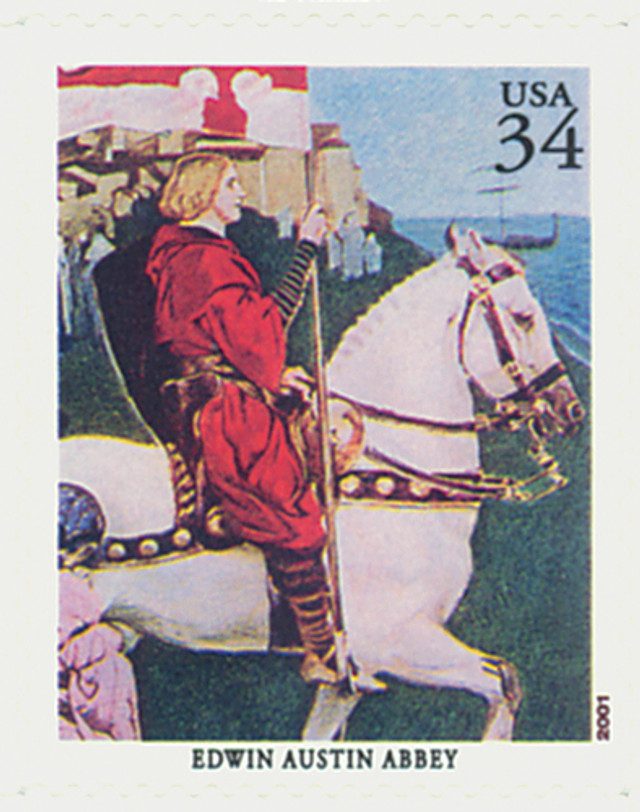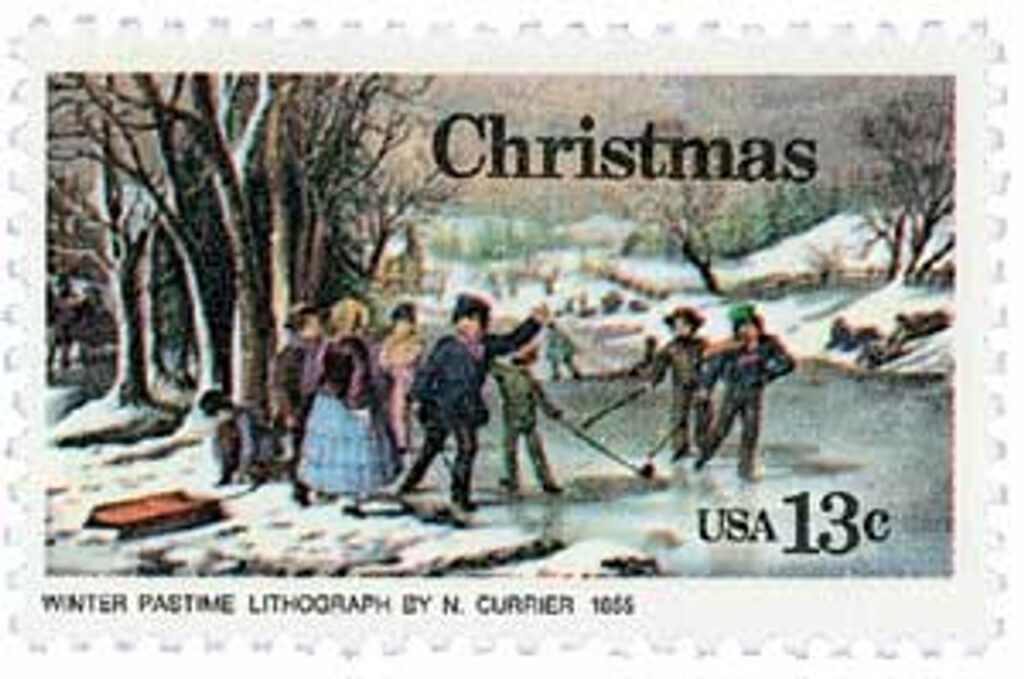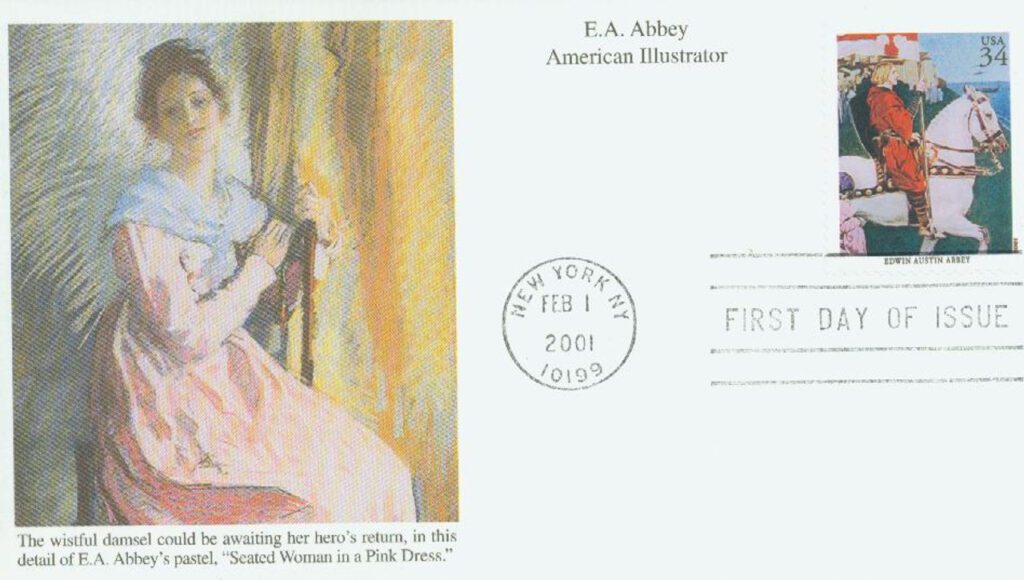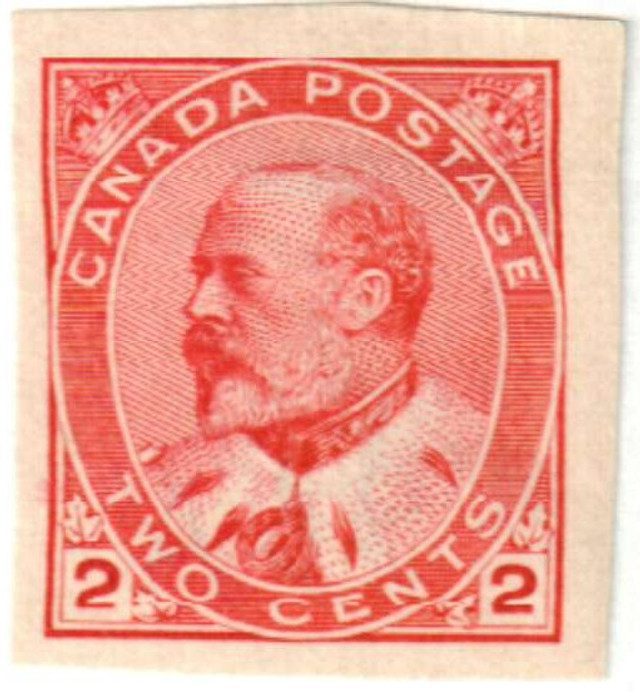Illustrator Edwin Austin Abbey was born on April 1, 1852, in Philadelphia, Pennsylvania. He is considered America’s first great illustrator. Abbey produced hundreds of illustrations for Harper’s magazines and popular books of the day.
Abbey enjoyed art from a young age and first took drawing lessons from local painter Isaac L. Williams. In 1868, he apprenticed as a draftsman with the publishers Van Ingen & Snyder. At the same time, he also took night classes at the Pennsylvania Academy of Fine Arts.
In 1870 Harper’s Weekly published his drawing Thanksgiving Day Among the Puritan Fathers in New England. The following year he moved to New York City to work for Harper’s Weekly, first as a draftsman, then as an illustrator. When Abbey was 22, he left Harper’s to work on his own, returning two years later.
Abbey studied British illustration and was fond of British subjects – illustrating British scenes and costumes from the 18th century. While much of his work was black and white illustrations, he also produced watercolors. In 1874, one of his paintings was displayed in the American Watercolor Society’s show. Two years later, he was made a member of the society. Then in 1877, along with Winslow Homer, Merritt Chase, Stanford White, and others, he founded the Tile Club. It was a social group that painted and sold decorative tiles.
In 1878, Harper’s sent Abbey to England to research material for his illustrations of Robert Herrick’s poems. That journey began Abbey’s lifelong affiliation with England. He was impressed with the contemporary British painters, with English literature, and with the wealth of authentic costumes and historic details available in England. Abbey lived in England for the rest of his life, though he took occasional trips back to New York and traveled Europe extensively.
While living in Europe, Abbey continued to produce illustrations for Harper’s weekly and monthly magazines, and some were later published as books. In 1888, he began producing illustrations and oil paintings of Shakespeare’s comedies for Harper’s Monthly – making a total of 133. Abbey also illustrated several popular books including Charles Dickens’s Christmas Stories and Oliver Goldsmith’s She Stoops to Conquer.
In 1890, Abbey began working on murals for the Delivery Room at the Boston Public Library. The resulting work, The Quest for the Holy Grail, was a 194-foot wide, 15-panel mural that he completed in 1901. During the 1890s, Abbey also produced number of large paintings, including seven that pictured Shakespearean scenes. In 1896 he was hired to paint a mural for London’s Royal Exchange. And in 1901 he painted King Edward VII’s coronation.
In 1902, Abbey was hired to paint a series of large murals for the Pennsylvania State Capitol building. He worked on murals depicting Von Steuben Training the American Soldiers at Valley Forge and the Reading of the Declaration of Independence. However, he died from cancer on August 1, 1911 and his assistant William Simmonds and friend John Singer Sargent finished the mural.
Abbey received many honors during his lifetime: honorary degrees, awards for expositions in Paris, Vienna, and the Pan-American Exposition. He was also a member of several notable groups including the American Academy of Arts and Letters and Britain’s Royal Academy. King Edward even offered to make him a knight in 1907, but he declined so he could remain an American citizen.
View some of Abbey’s art here.
| FREE printable This Day in History album pages Download a PDF of today’s article. Get a binder or other supplies to create your This Day in History album. |
Discover what else happened on This Day in History.







It’s a little confusing to see a Currier and Ives stamp in this article. Is it only because they were the lithographers but the artwork is Abbey’s?